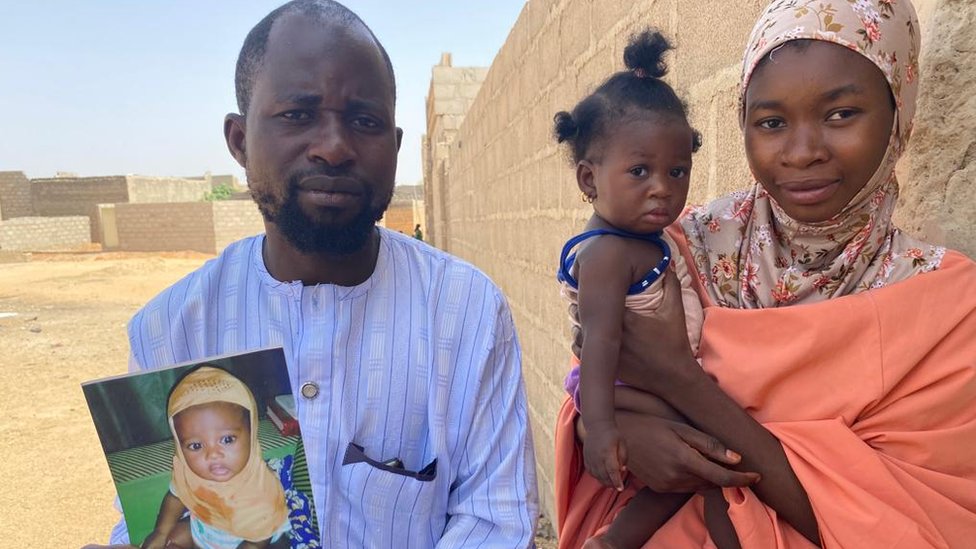
“My dream na for Halima to grow up, go school and become medical doctor but malaria snatch her away from me and her mother.
“Di most painful part and wetin I dey always remember be say she die for my hands on our way to di hospital.”
Dat na how Sani Bature wey dey stay Kano for northwest Nigeria begin im tori to BBC News Pidgin of how malaria kill im five-months-old pikin Halima two years ago.
United Nations set aside 25th April of every year as Malaria Day to tok about issues wey concern di disease wey still dey kill hundred of thousands of pipo for Africa each year.
According to latest wey World Health Organisation release on Monday to tok about Malaria dem say about 95% of 228 million cases of di sickness come from Africa and for di continent na 602,020 pipo die from am for 2021.
Sani say anytime e hear about di statistics for Radio or Television e dey remind am of im daughter and how she for don grow by now.
“Unlike before wey I no dey mind, now anytime I hear malaria stats for radio or TV e dey remind me of Halima and how she for don grow by now,” Sani tok.
“She don already learn to siddon and me and her dey play wella anytime I dey house.”
Deaths from Malaria especially for pikin dem na im don make WHO approve one vaccine for children to treat Malaria.
During di trials of di vaccine for Malawi, Ghana and Kenya dem find out say di vaccine reduce malaria cases by forty per cent.
‘No single day wey I no dey tink of Halima’
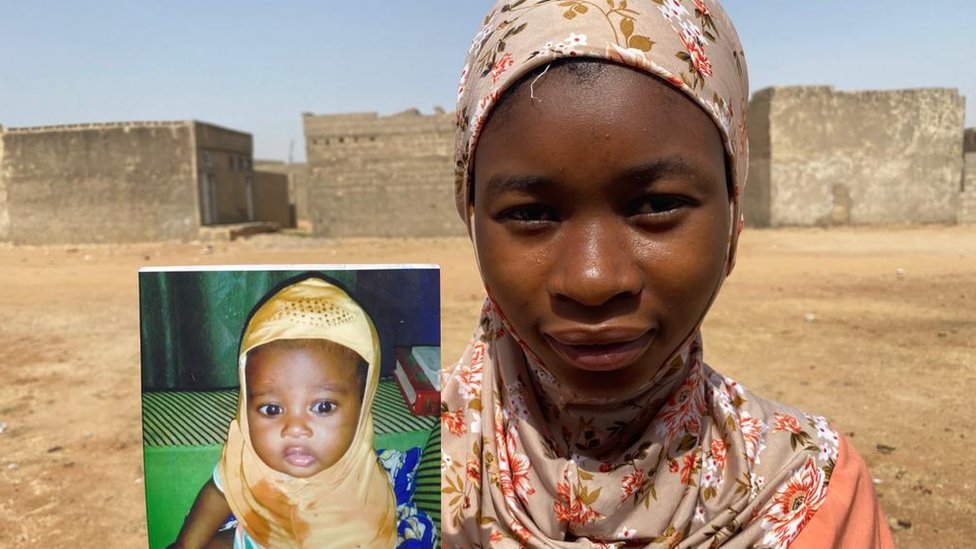
Di mother Zahrau Mustapha say she dey think of Halima every blessed day even though God don bless her with another Daughter, Safiya, wey recently clock nine months.
“Halima na my first child and I born her on 20th September 2019 and she die on 4th March 2020. No single day wey I no dey think of her.”
She add say di death of Halima don make dem dey take extra care in terms of protecting themselves from Malaria.
“After her death we buy extra mosquito nets and we dey quick enter and for our baby na double net for her because inside our net she get her own inside and also insecticide dey always dey now.”
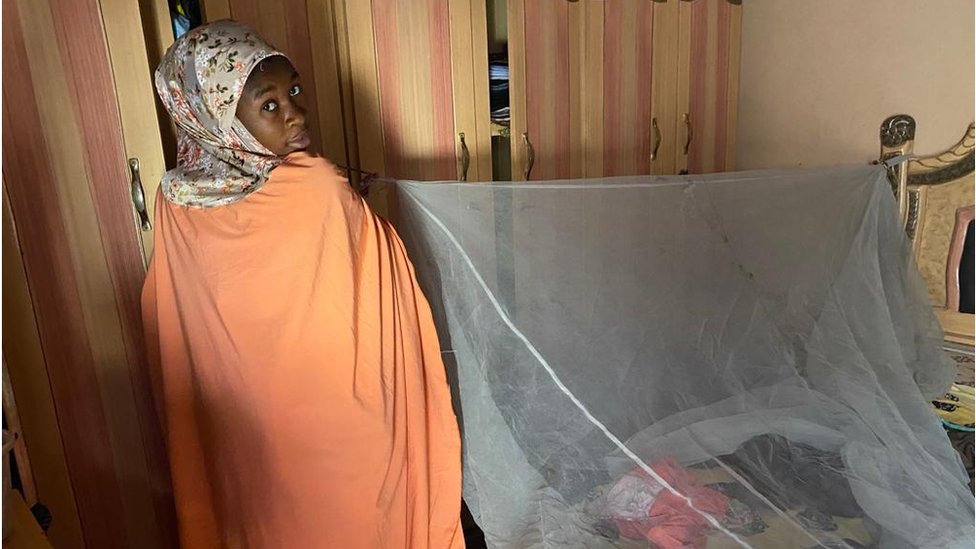
Zahrau call on goments to bring back the mosquito spray wey dey happun before many areas before now.
“Years ago e get pipo from health or environment agencies wey dey come spray our area with mosquito repellent but now nothing like dat again. Goment suppose bring back dat program.”
Sani say for Gurin Gawa area wey dem dey for Kano no be only dem lose pikin from Malaria as some of im neighbours also suffer di same fate.
Wetin you need know about Malaria
For most cases, malaria dey transfer through di bites of female Anopheles mosquitoes – na more than 400 different species of Anopheles mosquito dey, of which around 30 dey carri malaria.
Di mosquitoes wey dey spread di disease dey bite usually wen pipo dey sleep for night.
As 25 April na World Malaria Day, dis na wetin you suppose sabi about di disease:
- Na four different types of Plasmodium parasite dey cause malaria: P. falciparum, P. malariae, P. ovale and P. vivax.
- Di parasites dey pass from pesin to pesin through di bites of infected female Anopheles mosquitoes, wey dem call “malaria vectors”.
- You fit prevent di disease and treat am too.
- For 2017, na estimated 219 million cases of malaria dem report for 87 kontris (WHO figures).
- Na Africa get high share of di world malaria – for 2017, 92% of malaria cases and 93% of malaria deaths happun for di continent.
Malaria signs – high fever, headache, and cold – go usually appear 10-15 days afta mosquito wey get infection bite.
E fit dey small and hard to recognise say na malaria, but if dem no treat am within 24 hours, P. falciparum malaria fit lead to serious sickness, wey fit lead to death.
Cases of malaria still on di rise in Nigeria?
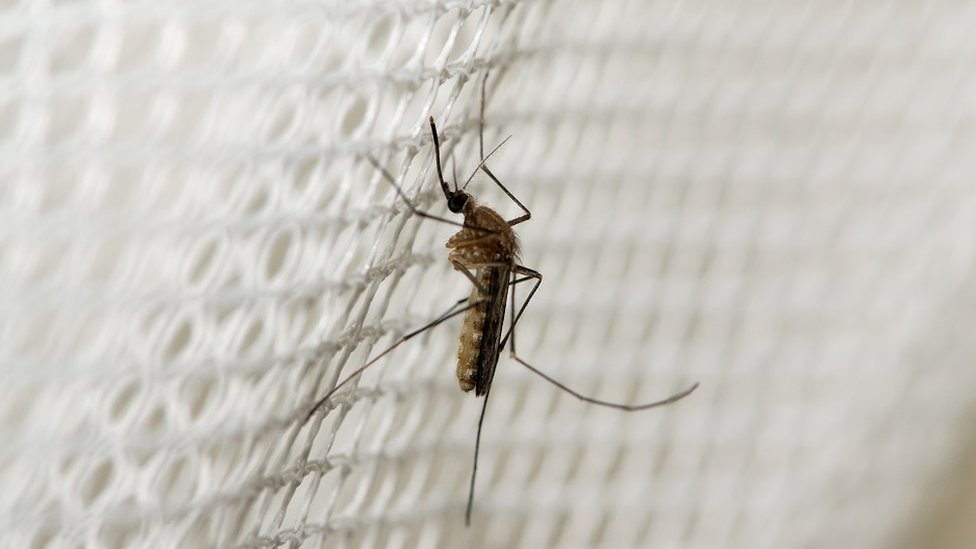
Dr Usman Qalbusunnah na medical doctor for Rigasa General hospital for Kaduna state (northwest Nigeria) and e say despite plenty efforts malaria still dey on di increase across di kontri.
“On a daily basis 60% of patients wey I dey attend to na malaria cases wey show say di illness still dey go up despite all efforts to end it.
“Anoda thing be say na di resistant form of malaria dey now wia be say treatment dey take longer in fact some patients go return to hospital after a week or two wit di same malaria symptoms.”
Wetin be di Solution?
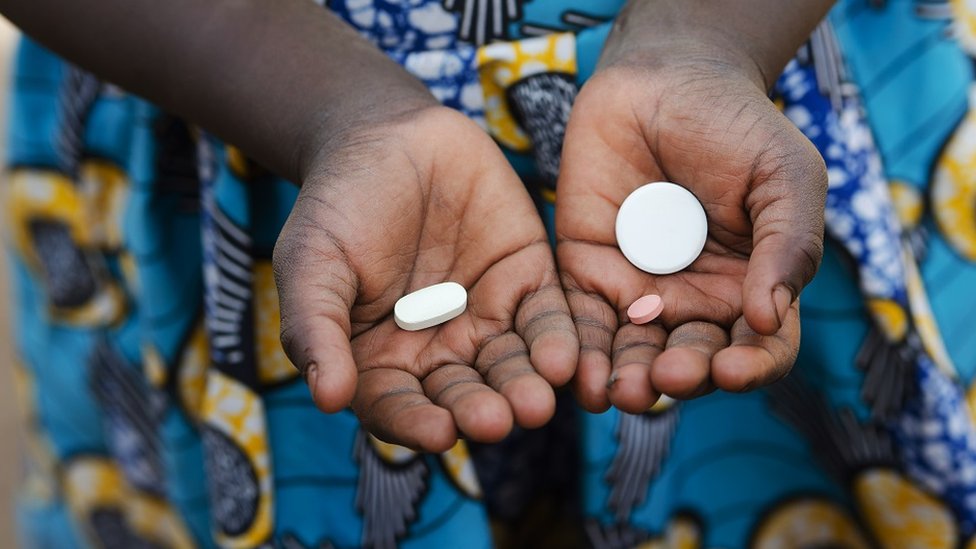
Dr Usman say ‘prevention’ and not ‘treatment na di way to go so far as Malaria dey concern because no matter di improvement in treatments if cases continue dey happun e no go augur well for society.
“Na goment get biggest role to play for dis issue, first provide good drainages for areas and also refuse dumps suppose dey far away from pipo.
“As for individuals pipo suppose make sure say dia homes dey clean and free from dirty, stagnant water and dirty wey dey attract mosquitoes and make pipo dey sleep inside treated mosquito nets.”




